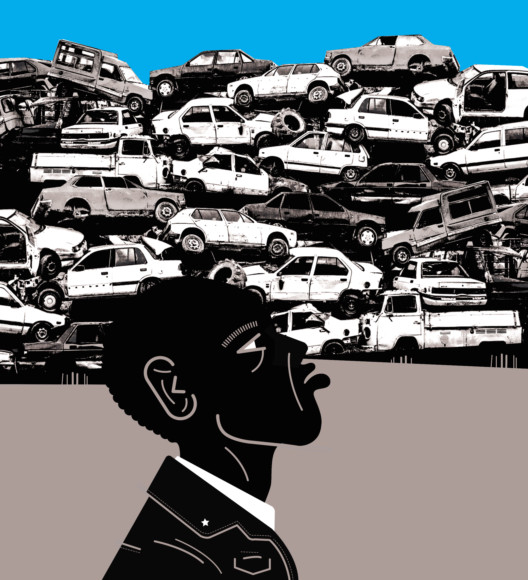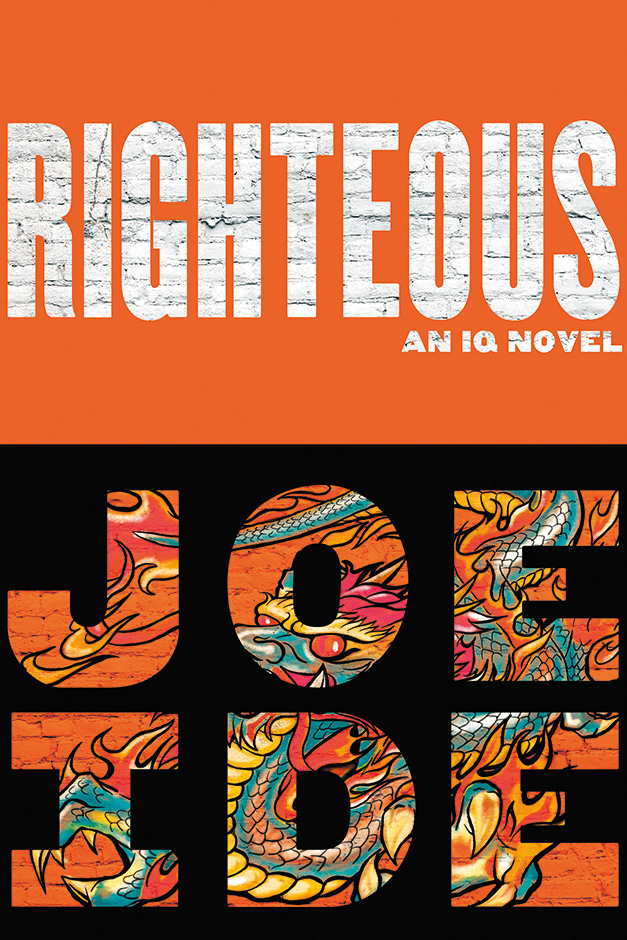By Joe Ide, Mulholland, 330 pages, $26
Last year, Joe Ide became the best thing to happen to mystery writing in a very long time. He made a smashing debut with IQ, which won the Macavity Award for best first novel, and if you can possibly read it before approaching its follow-up, Righteous, you won’t be sorry. Ide is nothing if not precise, and he begins his new book in the exact spot where the last one ended.
There are a lot of fine reasons to discover Ide’s work, and seamless continuity is just one of them. He writes thumbnail descriptions that rival Elmore Leonard’s. (One Frankensteinian thug has a body “cobbled together with parts from an orangutan and an office building.”) His dialogue, much of it unprintable here, has bite that puts him in the Winslow/Lehane league. (A tame sample: “Don’t you have anything better to do, like cleaning your assault rifle or meeting somebody at the crack house?”)
Then there’s his leading man. Isaiah Quintabe, nicknamed IQ, is a reticent African-American guy living in East Long Beach, California. It’s a place ruled by gangs and brimming with trouble. Ide, who is Japanese-American, grew up in South Central Los Angeles, and he creates a broad, slightly cartoonish neighbourhood for these books. It’s definitely a strange breeding ground for a latter-day Sherlock, who is one of Ide’s inspirations.
In IQ, Isaiah loves his older brother, Marcus, whom he regards as a role model and hero. But Marcus dies in a hit-and-run accident, and Isaiah has to raise himself, with the help of his wisecracking friend Dodson. IQ ends in a junkyard where Isaiah discovers the car that had hit Marcus, and Righteous starts in that same junkyard eight years later. The car is still there and still full of evidence.
Isaiah sets out to discover how and why Marcus died — and Ide quickly turns the tables on his readers. What if Marcus wasn’t the hero his kid brother imagined? What if he led a dirtier life than Isaiah thought possible? In the prologue to Righteous, Isaiah discovers that the accident was no accident: Marcus was deliberately targeted. Whoever drove that car sat in it with a sandwich, waiting for Marcus to try to cross the street so he could make the kill.
As anyone who read IQ will know, Ide isn’t a one-plot type of writer. He sets many schemes in motion. In the new novel, they involve gambling, a natty Rwandan Hutu gangster who lost one leg to the Tutsi, Chinese triads, money-laundering, human trafficking and a whole lot more. Ide writes about the hostility among ethnic groups — notably black gangs and Chinese triads (whose members’ affectation of American gang habits comes in for some mockery, though their toughness does not) — in ways that would be offensive if they weren’t equal-opportunity insults. The world of these books is one of constant trash talk, and Ide delivers it with style.
None of it comes from Isaiah. He remains the one stand-up guy in the midst of hot- and cold-running human detritus. But eight years have changed him. He’s no longer the boy wonder we first met. He’s a grown man with no concrete future plans who solves neighbourhood crimes mostly as favours — until he suddenly discovers motivation. (Dodson is now a family man, settled down with a woman who can talk back to him and a “Lil’ Tupac” expected any day.)
The galvanising force is Sarita, Marcus’ girlfriend. When Isaiah crosses paths with her again, he starts imagining an adult life with wine, an actual sofa and the woman of his dreams.
Will Ide lead Isaiah towards happiness? The book’s battles play out ingeniously, with Isaiah trying to figure out how he could have been so wrong about Marcus. He is also hired by a seemingly reputable Chinese father to rescue a daughter who has severe gambling problems. A lot of characters crop up in Righteous; one reason is that the trail Marcus left was a complicated one, but another is that Ide can’t seem to resist a good subplot when he thinks of one. A third possibility may be that this series plans to move on. Like IQ, the new book has an ending that will make you hope for the arrival of another installment, pronto.
Righteous takes its title from a quality that Marcus was thought to represent and that Isaiah still embodies. It seems possible, by the novel’s end, that Isaiah has done what he can in East Long Beach and is ready to take on the wider world. It also seems possible that Isaiah may stop working for peanuts — or in one case, “live chickens and blueberry muffins.” And it may be time for Ide to lay to rest Isaiah’s Marcus obsession and give him other things to think about. I can’t wait to find out what they’ll be.
–New York Times News Service











